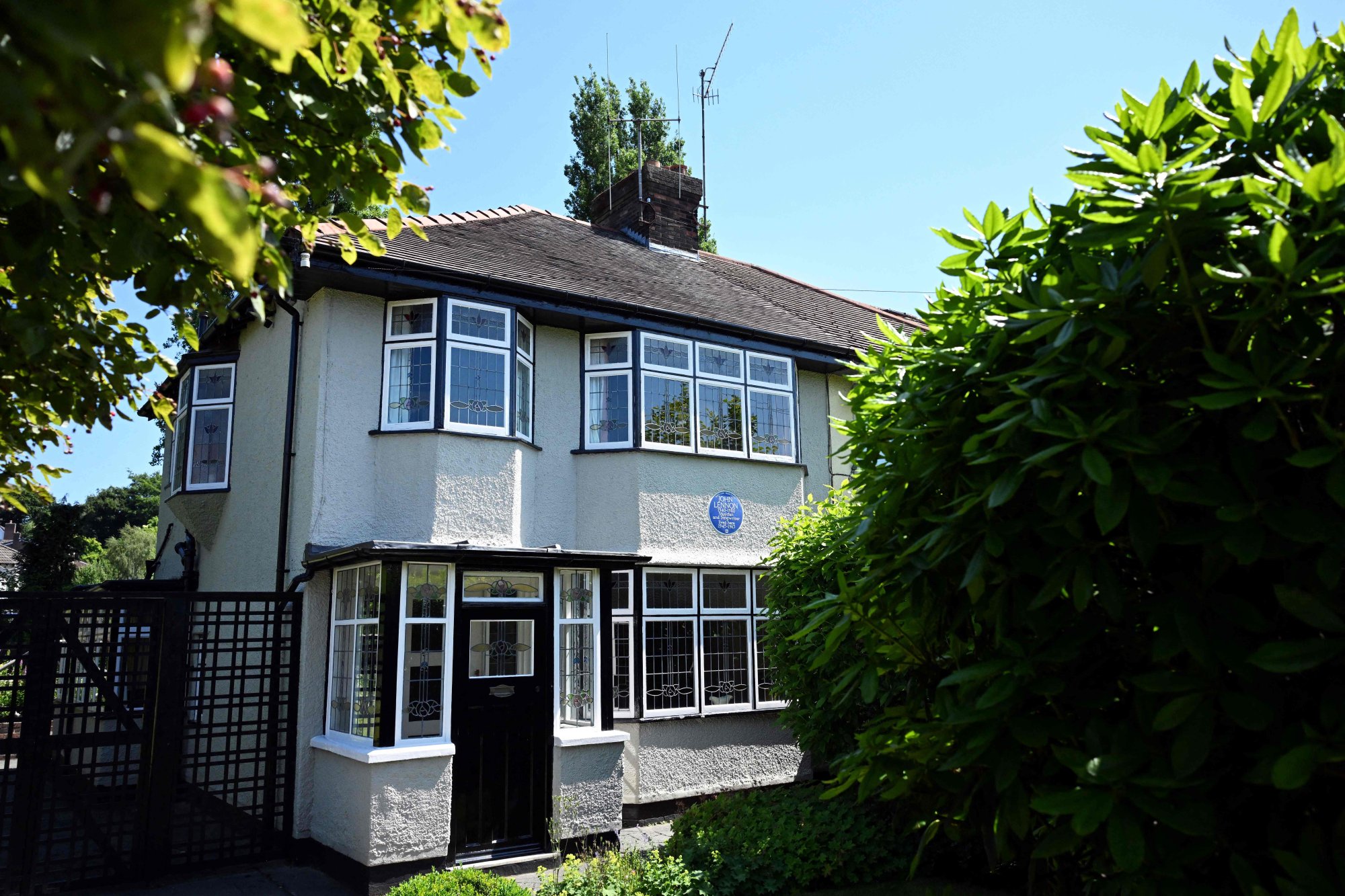
Liverpool gets by with a little help from The Beatles, as music and nostalgia attract tourists and their money to the UK city
- As Britain deals with inflation and cost-of-living problems, Liverpool’s coffers are being topped up by fans of the city’s most famous export: The Beatles
- With tours of landmarks from the band’s songs and personal lives, museums and music venues, Beatles tourist spending provides a much needed income stream
It was once a thriving maritime hub, including for the transatlantic slave trade, but after years of industrial decline, Liverpool’s economy is getting a boost from its most famous sons.
“This is the most important house of the most important band of contemporary music,” Magical Mystery Tour guide Dale Roberts tells tourists outside the terraced home where The Beatles’ Paul McCartney grew up.
McCartney lived at 20 Forthlin Road before he became one of the “Fab Four” – along with John Lennon, George Harrison and Ringo Starr – and a worldwide superstar.
The red-brick property is now run by heritage body the National Trust, as is Lennon’s former home at 251 Menlove Avenue. Both sites are regularly visited by fans of the band.

Like other towns and cities across the UK, Liverpool, a port city in northwest England, is facing a cost-of-living crisis.
Its economy is based on “football and The Beatles”, says marketing manager Victoria McDermott, whose employer runs the tour and owns the Cavern Club where The Beatles cut their teeth in the early 1960s.
The city, which last month hosted the Eurovision Song Contest on behalf of 2022 winners Ukraine, is home to English Premier League football clubs Liverpool and Everton.
“It’s very emotional,” says Graham Biley after viewing McCartney’s former home as part of the Magical Mystery Tour, also the title of a Beatles song and a surreal 1967 film.
Part-time musician Biley, 70, is joined by about 40 people on the bus, which also takes in Penny Lane and Strawberry Field, which both feature in titles of two of the band’s most popular songs.
“Don’t be too long otherwise you’ll stay stuck in ‘Strawberry Fields Forever’,” jokes Roberts as he spells out the full title to laughter from the customers.

“The first time I heard The Beatles song ‘The Long and Winding Road’, I cried,” recalls Hiromi Beckstrom, 56, recalling the moment some 45 years later.
Japanese-born, she travelled from the United States with her daughter Alexandra on what she described as a pilgrimage.
Two world wars, the Great Depression and deindustrialisation plunged Liverpool into a long economic decline. “But … (then) four things happened,” says Roberts. “John, Paul, George and Ringo!”

It was six decades ago, but “Beatlemania” lives on in Liverpool, where statues of the Fab Four can be found around the city.
Two museums are dedicated to the band, along with countless restaurants, bars and souvenir shops paying homage and generating large sums for the local economy.
Almost half of Liverpool’s business tax revenue comes from tourism, local councillor Harry Doyle says.
Beatles-related tourism is worth about £120 million (US$152 million) per year and supports some 2,500 jobs, according to local government data.

The rebuilt Cavern Club, meanwhile, welcomes 800,000 fans annually, said McDermott.
Music tourism is a big earner too, in neighbouring Manchester, the birthplace of Britpop legends Oasis.
Glasgow attracts fans of Scottish indie band Belle & Sebastian, while Amy Winehouse devotees pay homage to her statue in the beehive-haired singer’s old haunt of Camden Market in north London.
Beckstrom and her daughter are also planning a trip to London’s Abbey Road Studios, where The Beatles recorded most of their music.
Britain is home to renowned summer music festivals, notably Glastonbury, which opened on June 21and is set to attract about 200,000 visitors.
Headline acts include international stars such as Elton John, Cat Stevens, Guns N’Roses and Lana del Rey.
The UK music industry generated £4 billion in 2021 – still some way behind the £5.8 billion before the Covid-19 pandemic.
Abroad, the United States benefits from fans of Elvis Presley heading to his fabled home Graceland in Memphis, Tennessee, while Jamaica attracts followers of Bob Marley.
Danske Bank chief economist Michael Grahn estimated that the start of Beyoncé’s world tour in Stockholm last month contributed 0.2 percentage points to Swedish inflation as fans flocked to hotels and restaurants.

.png?itok=arIb17P0)